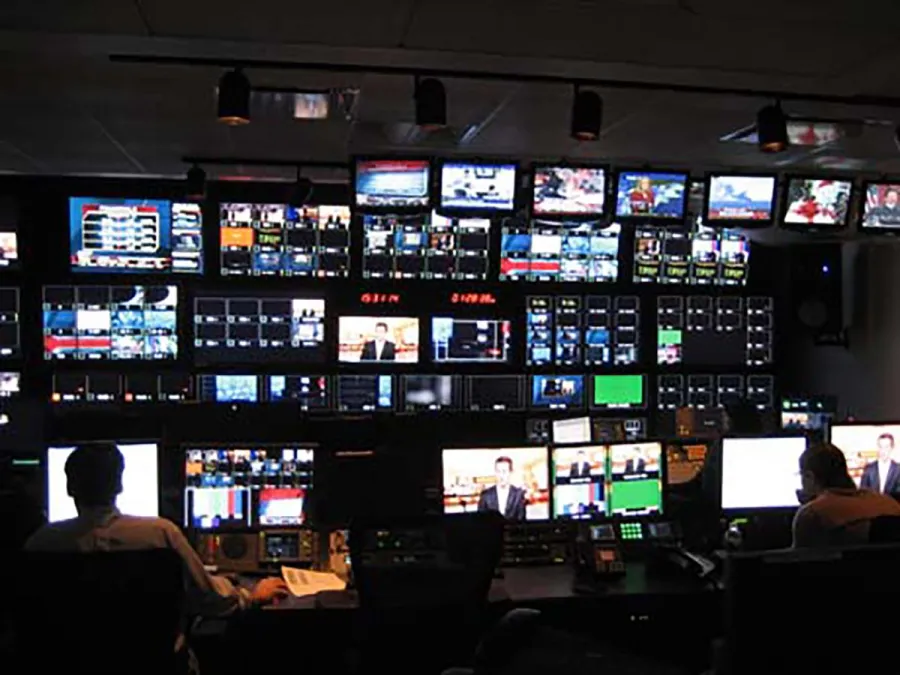The Sinclair-Tribune merger is dead

Tribune Media is withdrawing from the $3.9 billion merger with Sinclair Broadcasting. Its decision comes more than a year after the merger was announced. In that time, the merger went from being a seemingly sure-thing, with friendly regulatory and political environments, to a serious issue for Sinclair, the largest broadcaster in the US.
The merger would have resulted in a broadcast behemoth, harming localism, reducing viewpoint diversity, and killing jobs. It would have given Sinclair the ability to push its political spin into more than 70% of US television households.
Despite these dangers, the merger seemed likely to succeed. FCC Chairman Pai gutted media ownership rules just prior to the Sinclair-Tribune merger announcement, raising questions among lawmakers and investigators inside the FCC. And even though the FCC is supposed to be an independent agency, President Trump’s friendship with Sinclair’s CEO is well-known, and when the merger was first announced, Politico reported that Jared Kushner, President Trump’s son-in-law and top adviser, told a group of business leaders that the Trump campaign made a deal to provide Sinclair access to the president. In exchange, Sinclair would broadcast Trump interviews without commentary. Sinclair later hired a Trump spokesman.
But even in this friendly environment, the deal started to stall as Sinclair failed to gain regulatory approval. The merger faced significant opposition from across the political spectrum, including from NABET-CWA, which represents 10,000 employees across the broadcast industry. “The proposed Sinclair-Tribune merger would result in job cuts at dozens of stations across the country and would harm the ability of local stations to broadcast information vital to their communities in a responsible and unbiased manner,” said NABET-CWA President Charlie Braico. “This merger is not in the interest of broadcast industry employees and is not in the interest of the American people.”
The merger began to face regulatory challenges. The FCC paused its merger review shot-clock to request more information from Sinclair – and never restarted it. Public interest groups argued in court about the outdated UHF discount, which the merger relied on to skirt FCC audience reach rules. Sinclair released a sham divestiture proposal that strained the meaning the of the word “divestiture.” Eventually, after much pressure from opposition and patience from the FCC, Chairman Pai announced that he had “serious concerns” about the merger and the Commission voted unanimously to designate the merger for a hearing, a move experts say likely killed the massive media consolidation deal.
Now Tribune is withdrawing, officially ending the merger. In addition, Tribune is suing Sinclair for derogation of Sinclair’s contractual obligations. “Sinclair's entire course of conduct has been in blatant violation of the Merger Agreement and, but for Sinclair's actions, the transaction could have closed long ago," Tribune said in a statement.
Links:
Tribune withdraws from Sinclair merger, saying it will sue for ‘breach of contract’ (Washington Post, Aug. 9, 2018)
Sinclair to buy Tribune for $3.9 billion (Speed Matters, May 12, 2017)
Lawmakers call for investigation into Pai’s treatment of Sinclair-Tribune merger (Speed Matters, Nov. 14, 2017)
FCC Chairman Pai under investigation for possible collusion with Sinclair (Speed Matters, Feb. 16, 2018)
NABET-CWA joins broad coalition to stop Sinclair-Tribune merger (Speed Matters, Nov. 9, 2018)
CWA members oppose AT&T’s attempts to stop serving rural and low-income communities in California
CWA urges FCC to deny industry attempts to loosen pole attachment standards
CWA District 6 reaches agreement with AT&T Mobility



